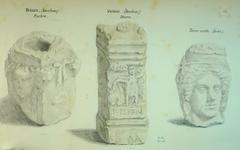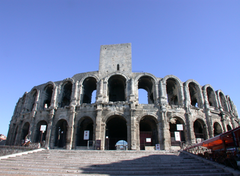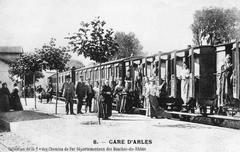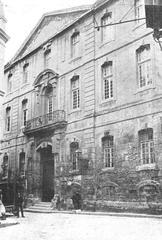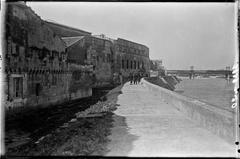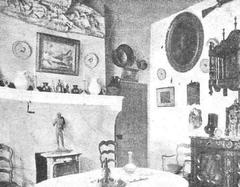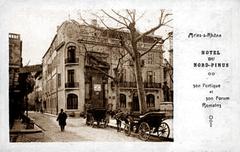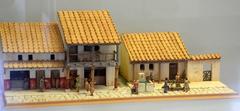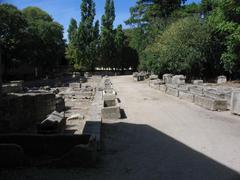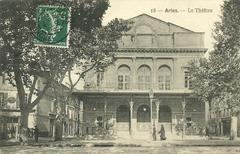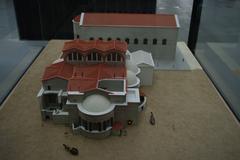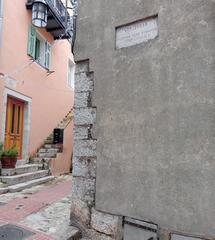Temple Protestant d’Arles: Visiting Hours, Tickets, and Historical Significance
Date: 04/07/2025
Introduction
Nestled in the heart of Arles, the Temple Protestant d’Arles—often called La Rotonde—serves as a powerful symbol of religious diversity and cultural resilience in southern France. This historic monument offers a distinct window into Provence’s Protestant heritage, standing out amid Arles’ renowned Roman ruins and vibrant cityscape. With origins rooted in the 16th-century Reformation and shaped by centuries of perseverance, the temple embodies both the spiritual legacy and social contributions of the Protestant community. Today, it remains a living center for worship, cultural exchange, and community engagement.
This comprehensive guide covers the Temple Protestant d’Arles’ history, architectural features, cultural significance, practical visitor information—including opening hours, tickets, and accessibility—and recommendations for nearby attractions. Whether you are a history enthusiast, architecture lover, or cultural traveler, you’ll find all the details needed to plan your visit and appreciate this unique Arles landmark (Arles Tourist Office; France-Voyage; Musée Protestant).
Table of Contents
- Introduction
- Historical Context and Evolution
- Architectural Significance
- Religious and Cultural Importance
- Visiting Hours and Tickets
- Accessibility and Travel Tips
- Community Role and Events
- Nearby Attractions
- Frequently Asked Questions (FAQ)
- Plan Your Visit
- References
Historical Context and Evolution
The Temple Protestant d’Arles is a testament to the enduring presence of Protestantism in a region historically dominated by Catholicism. Protestant worship in Arles began during the 16th-century Reformation, when Calvinism spread across southern France. Despite persistent persecution, especially after the revocation of the Edict of Nantes in 1685, Protestant communities survived, often practicing their faith in secrecy.
After the French Revolution and the Declaration of the Rights of Man and of the Citizen, Protestants regained the right to worship openly. The current temple, constructed in the late 18th century as the “Cercle de la Rotonde” (a social club), was later adapted for Protestant worship. This transition mirrors the city’s evolving attitudes toward religious freedom and diversity (Waymarking.com).
Architectural Significance
The Temple Protestant d’Arles stands out for its rare circular plan and restrained neoclassical style. Its main hall—a rotunda capped with a shallow dome—creates a serene, light-filled space ideal for both worship and community events. The building’s simplicity, with clean lines, symmetrical proportions, and minimal ornamentation, reflects Reformed theological principles that emphasize Scripture and congregational worship over elaborate decoration.
Originally constructed in 1790 as a noble social club, its transformation into a Protestant church in the 19th century imbued the space with renewed spiritual and social purpose. The monumental stone staircase and domed ceiling remain key highlights, while the interior’s focus on the pulpit underscores the importance of preaching in the Reformed tradition (France-Voyage; Monumentum).
Religious and Cultural Importance
The temple serves as the central place of worship for Arles’ Reformed (Calvinist) Protestant community and is affiliated with the United Protestant Church of France. Its activities extend beyond religious services to include educational programs, social outreach, and interfaith dialogue. The community’s efforts underscore values of civic engagement, religious tolerance, and social responsibility, which have long contributed to the broader fabric of Arles’ pluralistic identity (France.fr; Musée Protestant).
Cultural events, concerts, and lectures frequently take place within the temple, welcoming both locals and visitors. Participation in citywide events such as the European Heritage Days highlights the temple’s ongoing relevance in Arles’ cultural landscape.
Visiting Hours and Tickets
- Visiting Hours: The Temple Protestant d’Arles is generally open to the public during worship services (Sundays at 10:30 AM) and during special events like the European Heritage Days in September. Additional openings may occur for concerts or cultural activities. It is advisable to check current schedules via the Arles Tourist Office or the temple’s notice board.
- Tickets: Entry is typically free. Donations are encouraged to support maintenance and community programs.
- Guided Tours: Guided tours are available during heritage events and occasionally by appointment. Contact the parish or tourist office to arrange a visit (France-Voyage; Monumentum).
Accessibility and Travel Tips
- Location: The temple is located at 9 rue de la Rotonde, just off boulevard des Lices, in Arles’ historic center. It is within easy walking distance of major city sites.
- Accessibility: The entrance is at street level and relatively accessible, though some upper galleries may not be suitable for visitors with mobility challenges. Contact the parish in advance regarding specific needs.
- Photography: Photography is generally permitted outside of services, but flash and tripods may be restricted.
- Parking & Transport: Arles’ city center is pedestrian-friendly. Parking and public transport are available nearby.
- Visitor Etiquette: Dress respectfully, especially when attending services or guided tours.
Community Role and Events
The Temple Protestant d’Arles is a living monument, hosting a variety of religious, cultural, and community events. From regular worship and Bible study groups to concerts and lectures, the temple serves as a gathering point for both the Protestant community and the wider public.
Special events such as city festivals, Christmas and Easter services, and the annual “Journée du Protestantisme” promote cultural exchange and community cohesion. During European Heritage Days, the temple opens its doors for guided tours and educational programs (Musée Protestant).
Nearby Attractions
The temple’s central location makes it an ideal starting point for exploring other Arles historical sites, including:
- The Roman Amphitheatre (Arènes d’Arles)
- The Church of Saint-Trophime
- The Alyscamps Roman necropolis
- Fondation Vincent van Gogh Arles
- The lively Saturday market on boulevard des Lices
These sites, together with the temple, offer a comprehensive and enriching Arles experience (The Travel Folk).
Frequently Asked Questions (FAQ)
Q: Are tickets required to visit the Temple Protestant d’Arles?
A: No, entry is free; donations are appreciated.
Q: When is the best time to visit?
A: During Sunday worship or special events such as European Heritage Days.
Q: Is the temple wheelchair accessible?
A: The entrance is at street level, but some areas may have limited accessibility. Contact the parish for specific inquiries.
Q: Are guided tours available?
A: Yes, during heritage days and occasionally by appointment.
Q: Is photography allowed?
A: Yes, outside of services and with respect for the sacred environment.
Plan Your Visit
To ensure a smooth and rewarding visit, always check the latest opening hours and event schedules on the Arles Tourist Office or the temple’s official channels. Consider combining your visit with a walking tour of Arles’ historic center and nearby landmarks.
For audio guides and interactive maps, download the Audiala app. Stay informed about upcoming events and cultural highlights by subscribing to the Audiala newsletter and following social media updates.
References
- Arles Tourist Office
- France-Voyage
- France.fr
- Monumentum
- Musée Protestant
- Waymarking.com
- The Travel Folk
- Wikipedia
- France Travel Blog
- VisitSights
- Arles Protestants
